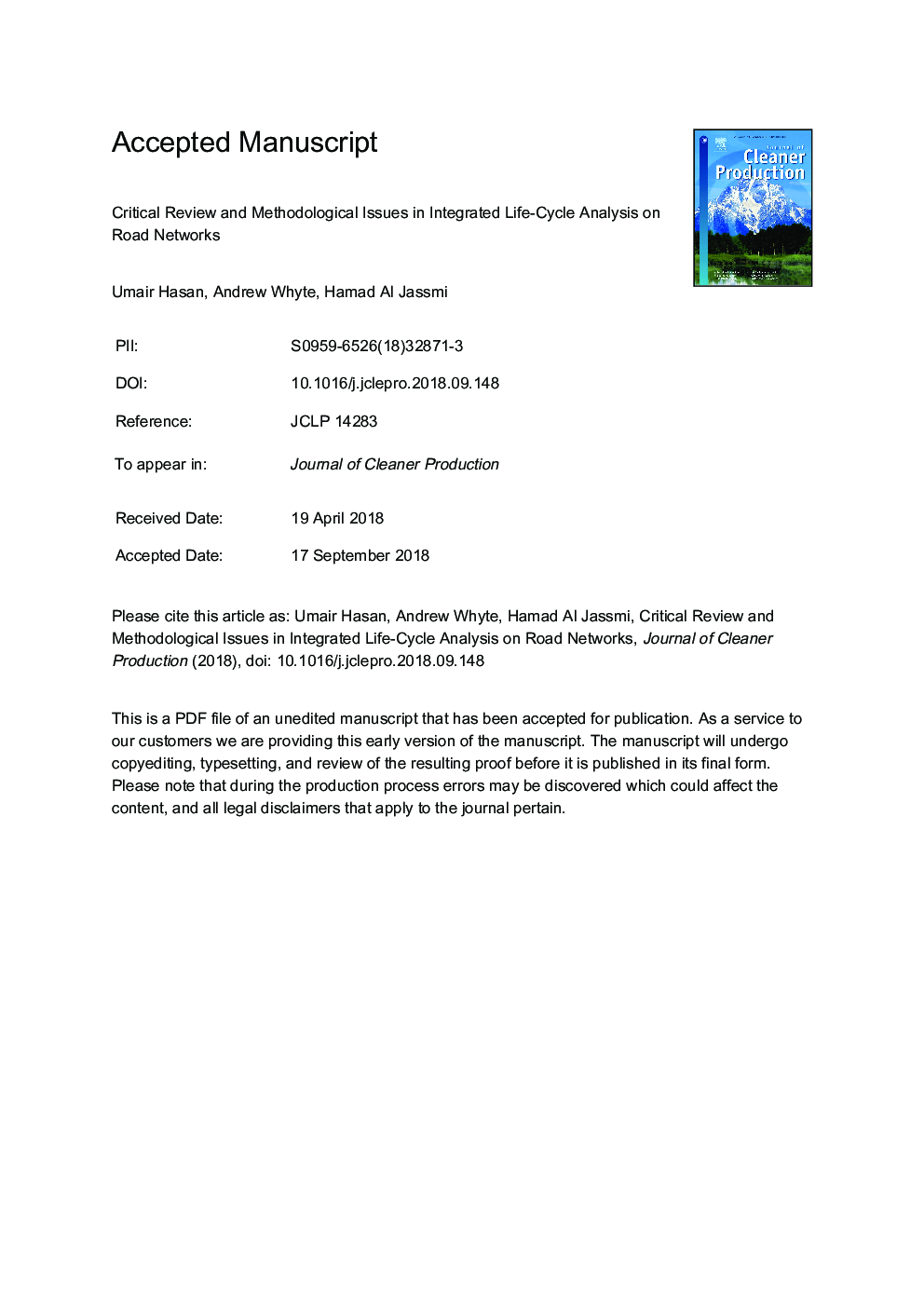| Article ID | Journal | Published Year | Pages | File Type |
|---|---|---|---|---|
| 11019770 | Journal of Cleaner Production | 2019 | 45 Pages |
Abstract
Life-cycle management of road network projects traditionally emphasise material production and construction stages, with less attention given to usage stage and functionality improvement. Increasingly there is a need to address: inconsistencies in cost attribute selection; adjusting for uncertainties and costs; clarifying system boundaries; data sources; functional units and regional or temporal applicability of life-cycle frameworks. The current study focuses on a critical literature review of life-cycle cost analysis (LCCA) and life-cycle assessment (LCA) research published in the last decade (post 2008) towards identification of research gaps. Accurately analysing all life-cycle stages, feedback loops, future cash and resource flows, and interlinking performance with overall sustainability can aid the decision-making process towards sustainable alternatives for constructing new, or rehabilitating existing roads. This review finds that the use of recycled materials, base/sub-base stabilisers and asphalt binder replacement has the potential of energy saving (â¥34% or 3.1â¯TJ), mitigating landfill disposal issues, and greenhouse gas load reduction (â¥34.5% CDE). Lack of real world LCCA-LCA application and stakeholder prejudice against recycled material usage are addressable by better stakeholder (decision-makers and road users) engagement via a social component. The proposed enhancements identified in this study can increase LCA/LCCA attraction to policy-makers, planners and users and ultimately ensure a more sustainable asset.
Related Topics
Physical Sciences and Engineering
Energy
Renewable Energy, Sustainability and the Environment
Authors
Umair Hasan, Andrew Whyte, Hamad Al Jassmi,
